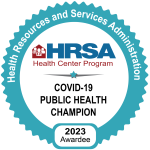
As the warmer weather approaches, the anticipation for fun in the water grows! Something that should not soon be forgotten is that with great fun comes greater responsibility. How are your water safety skills? Take a second and consider a few of these questions. Will your child always be with you this summer? Are your kids going to camp? How about childcare? How can you make sure your child is safe in and around the water?
Take a few tips from our Aquatics Manager, Kjell, and help everyone have a great summer!
If you’re sending your child to camp or daycare, always ask about the water activities your child will be participating in. It’s best to know what to expect. Depending on your child’s age, skill, comfort level, and type of activity, you may opt for a camp that has fun without swimming. If you decide on a camp with water activities, it’s important that your child possesses the necessary water skills. This includes being able to swim (not just doggie paddle), tread water for 1 minute, float on their back for 1 minute, jump in and resurface, and find the exit on their own. It’s also important to consider their decision-making abilities, how they handle peer pressure, their self-awareness, and their limits.
Consider the camp layout, all the physical barriers as well as the access to water. You might also ask about the camp staff training requirements. This could tell you a lot about the camp’s commitment to safety. Are lifeguards watching all water activities? This is an important question to determine and what safety measures are in place for water activities. Is the camp following protocols such as TEST/MARK/PROTECT, and does the camp have a written Emergency Action Plan in place? This will indicate that the camp is considering preventative measures and an emergency response. Finally, do they have emergency equipment on hand such as AED, a rescue board, oxygen, and First Aid kits?
The camper-to-counselor ratio is crucial for all activities, especially high-risk ones like swimming. Camps with low ratios provide better supervision and are inherently safer for each child. It’s also important to inquire about how the camp handles special accommodations, such as medications, known allergies, kids requiring lifejackets, and even medical conditions like seizures, and the level of training the counselors have.
Respecting the water and being mindful of these tips can help parents protect their children and they give everyone a chance to have fun in the sun together.
Happy swimming!

